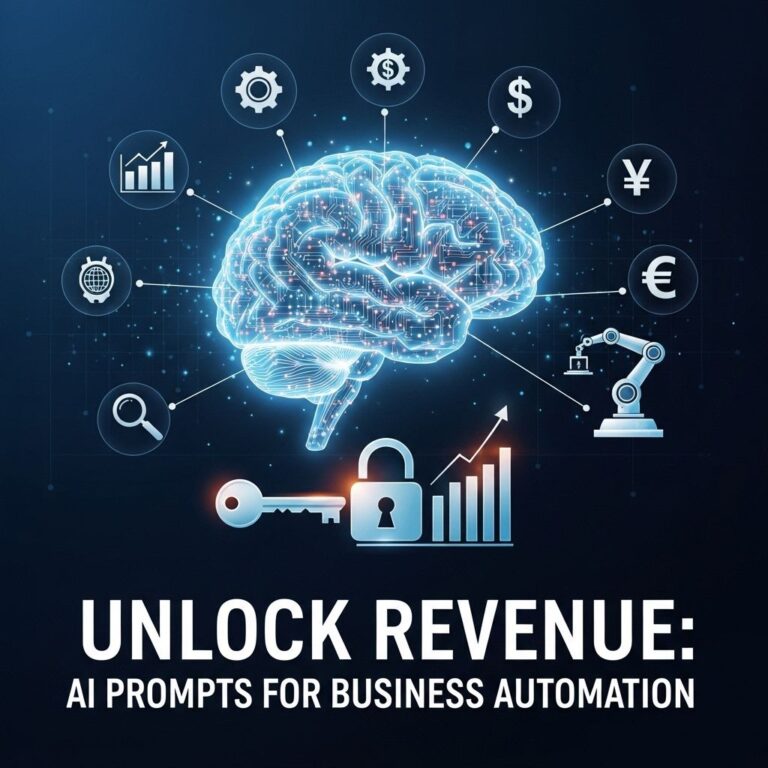In the rapidly evolving landscape of technology, artificial intelligence (AI) continues to transform industries, redefine workflows, and unlock new avenues for profitability. As businesses strive to remain competitive in 2025, integrating AI through well-designed templates has emerged as a pivotal strategy. These templates streamline processes, enhance decision-making, and optimize resource allocation. This article explores the implementation of AI templates, their benefits, and practical applications across various sectors.
Table of Contents
The Rise of AI in Business
Artificial intelligence is not merely a buzzword; it has matured into a cornerstone of modern business operations. In 2025, AI technologies are expected to play an indispensable role in:
- Automating repetitive tasks
- Enhancing customer experiences
- Driving data-driven decision-making
- Streamlining supply chain management
Understanding AI Templates
AI templates are pre-built frameworks that leverage artificial intelligence capabilities for specific tasks or applications. These templates can encapsulate algorithms, machine learning models, and data processing designs that users can modify and deploy with ease. The benefits of using AI templates include:
- Time Efficiency: Ready-to-use templates reduce the time required for development and deployment.
- Cost-Effectiveness: By minimizing the need for extensive in-house expertise, templates lower operational costs.
- Scalability: Templates can be adapted and scaled according to organizational needs.
- Consistency: Standardized templates ensure uniformity and reduce errors across processes.
Benefits of Implementing AI Templates
Incorporating AI templates into business operations offers numerous advantages that can lead to increased profitability.
1. Enhanced Productivity
AI templates automate mundane tasks, allowing employees to focus on more strategic initiatives. For example, customer support AI templates can handle inquiries, freeing up staff to tackle complex issues. This shift not only boosts productivity but also improves employee satisfaction.
2. Improved Accuracy
Templates designed with AI algorithms can analyze vast amounts of data with precision, reducing the likelihood of human error. This is particularly beneficial in fields such as finance and healthcare, where accuracy is critical.
3. Data-Driven Insights
AI templates can extract valuable insights from data, enabling organizations to make informed decisions. For instance, marketing teams can utilize AI templates to analyze consumer behavior and tailor campaigns accordingly. A simple table comparing traditional methods with AI-driven insights can illustrate this:
| Method | Efficiency | Accuracy | Response Time |
|---|---|---|---|
| Traditional | Low | Moderate | Days |
| AI-Driven | High | High | Minutes |
Key Applications of AI Templates
Various industries are leveraging AI templates to drive efficiency and innovation. Here are some notable applications:
1. Marketing Automation
Marketing teams can use AI templates to automate email campaigns, segment audiences, and personalize communication. This not only enhances customer engagement but also maximizes conversion rates.
2. Financial Modeling
Finance professionals can utilize AI templates for predictive modeling, risk assessment, and portfolio management. These templates help organizations simulate various financial scenarios, leading to better investment strategies.
3. Customer Relationship Management (CRM)
AI templates integrated into CRM systems can analyze customer data to improve relationship management. By predicting customer needs and preferences, businesses can provide tailored services, resulting in higher customer retention.
4. Supply Chain Optimization
In logistics and supply chain management, AI templates help forecast demand, optimize inventory levels, and manage shipping routes. This ensures that businesses can respond quickly to market changes while minimizing costs.
Steps to Implement AI Templates
To successfully integrate AI templates into your organization, consider the following steps:
- Identify Business Needs: Assess areas where AI can add value, such as customer interaction or operational efficiency.
- Choose the Right Templates: Research and select templates that align with your identified needs and goals.
- Customize and Train: Adapt the templates to fit your specific context and provide necessary training to your team.
- Monitor Performance: Continuously evaluate the effectiveness of AI templates and make adjustments as needed.
Challenges and Considerations
While the benefits are significant, organizations should also be aware of potential challenges:
Data Privacy Concerns
As AI templates often rely on large datasets, ensuring data privacy and compliance with regulations such as GDPR is crucial. Companies must implement robust data protection measures.
Integration Hurdles
Integrating AI templates into existing systems can pose challenges. Businesses need to ensure compatibility and invest in necessary infrastructure upgrades.
Skill Gaps
Despite the user-friendly nature of templates, employees may require training to maximize their potential. Continuous learning programs can help bridge skill gaps within the workforce.
The Future of AI Templates
As technology advances, the potential of AI templates will only grow. Innovations such as natural language processing and machine learning will enhance the capabilities of these templates, making them even more versatile and powerful. Looking ahead, businesses should:
- Stay informed about AI trends and advancements.
- Continuously invest in employee training and development.
- Explore new use cases for AI templates in emerging markets.
Conclusion
In 2025, AI templates will be a game-changer for businesses seeking to maximize profits and enhance operational efficiency. By understanding the benefits, applications, and challenges of these templates, organizations can position themselves for success in an increasingly competitive landscape. The key lies in smart implementation and a commitment to leveraging the capabilities of artificial intelligence to drive business growth.
FAQ
How can AI templates help maximize profits in 2025?
AI templates streamline processes, enhance productivity, and provide data-driven insights, allowing businesses to optimize their operations and increase profitability.
What types of businesses can benefit from AI templates?
Any business, from startups to large enterprises, can benefit from AI templates, especially those in marketing, finance, and operations.
Are AI templates easy to implement?
Yes, most AI templates are designed for user-friendliness and can be integrated into existing systems with minimal technical expertise.
What features should I look for in AI templates?
Look for features such as customization options, real-time analytics, scalability, and compatibility with existing tools.
How do AI templates improve decision-making?
AI templates provide valuable data insights and predictive analytics, enabling businesses to make informed decisions that drive profitability.
Will using AI templates require extensive training?
Typically, AI templates come with user-friendly interfaces and support resources, making training quick and efficient for most users.





